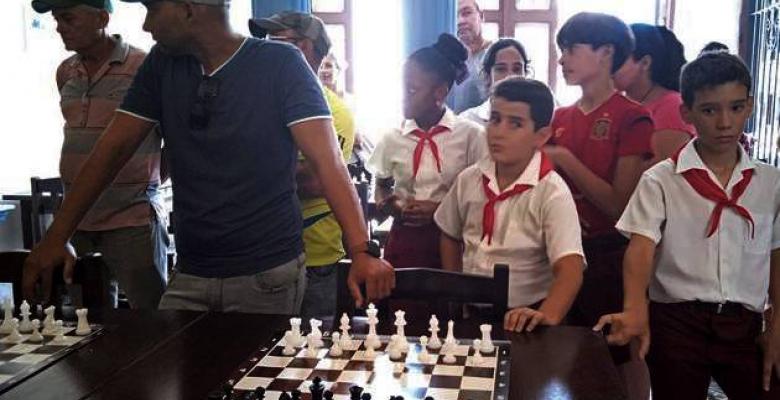What if We Teach Chess to Children?
especiales

Whether as an optional subject or as a subject in school curriculum, chess could very well have a special place in education. Teaching chess in schools would not only be a fun activity, but a powerful tool for developing cognitive and emotional skills in children.
In an era in which there’s a tendency to rely excessively on the immediate solutions offered by Internet and artificial intelligence, chess offers a way to cultivate patience, logic and critical thinking.
Thinking before acting: that’s one of the primary teachings of this universal game. Its practice promotes reflection and informed decision-making, because in each game players must anticipate their opponent's possible responses and evaluate multiple scenarios before making a move.
Of course, this ability to plan and anticipate consequences is necessary, not only for the game, but for daily life.
As if that were not enough, chess encourages the development of mathematical and logical reasoning skills. The game encourages children to identify patterns, solve problems and use deductive thinking to deal with their opponent. These are skills that have a direct relationship with learning mathematics and science, areas in which many students often have difficulties.
It’s about fostering the ability to think in a structured and logical way.
In times where the immediacy of information and solutions provided by technology seem to dominate all aspects of life, chess may seem like a thing of the past. But this game shows that not everything has an immediate solution and that some problems require time, concentration, and effort.
Resilience and perseverance, concentration and attention to detail. In a world full of digital distractions, where children are constantly exposed to notifications and immediate stimuli, chess teaches how to focus on a goal.
And beyond occasional rivalries, the game of science can contribute to the development of social and emotional skills. Children should be taught to accept victory with humility and defeat with grace, understanding that success and failure are natural parts of any effort.
Respecting opponents and recognizing the value of effort and practice are values that this practice can foster. These lessons of essential ethics can be transferred to other aspects of life.
Those who care about resource management need not worry too much. Chess does not require a large investment in equipment or infrastructure, which makes it accessible to any school. The biggest challenge would be for teachers, but in any case we are talking about elementary studies.
Teaching chess in primary schools would not only enrich the educational curriculum, but would also provide children with valuable tools for their personal and academic development. It’s an alternative to cultivate patience, logic and the ability to solve problems independently and thoughtfully. It’s not just a game, it’s also a powerful pedagogical tool.
Translated by Amilkal Labañino / CubaSí Translation Staff













Add new comment